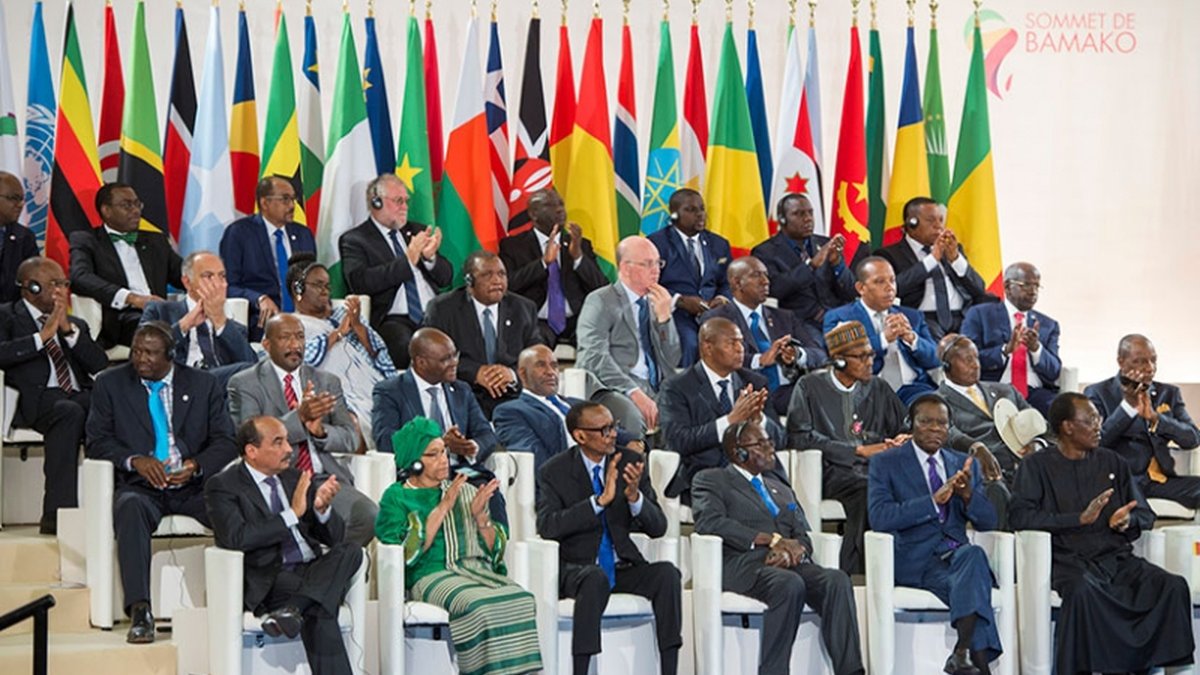
Benin/The Hague – In what should have been an opportunity for Africa's leaders to restore the hopes of all victims of international crimes on the continent, the 27th Africa-France Summit failed to produce a firm collective commitment to the fight against impunity in Africa, the Coalition for the ICC said this week.
On 13 and 14 January 2017, the African heads-of-state and government, with H.E. President Idriss Deby Itno acting in his capacity as chairperson of the African Union (AU) and H.E. President Ellen Johnson Sirleaf as chair of the Economic Community of West African States (ECOWAS), convened in Bamako, Mali for the 27th Africa-France Summit, which has been organized by France since 1973.
In closed session alongside French President Francois Hollande, the leaders extensively discussed questions concerning African peace and security without, however, arriving at any firm commitment around effective international justice and an end to impunity on the African continent, lamented the Coalition for the ICC on 16 January 2017, the occasion of the first ECOWAS Human Rights Day.
Africa's leaders must reaffirm earlier commitment
During the last Elysée Summit for Peace and Security in Africa, held in Paris on 6 and 7 December 2013, the heads-of-state and government not only “reaffirmed their commitment to collective security in Africa and to encouraging peace and promoting human rights, in line with the goals and principles of the Charter of the United Nations and the Constitutive Act of the African Union,” but also “committed to combat the impunity of the perpetrators of sexual violence and to implement national action plans involving civil society organizations, aimed at putting an end to this violence in accordance with the ‘Women, Peace and Security’ resolutions of the United Nations Security Council.”
Despite repeated appeals and mobilization by African civil society, the Africa-France Summit disappointed. In a context marked by the threat of collective withdrawal from the International Criminal Court (ICC) by African states, leaders’ responsibility to protect their populations demands a full commitment to deliver effective international justice, and to cooperate effectively so that impunity is no longer the law of the land in Africa.
Despite some positives, justice takes a back seat
The Coalition notes that leaders agreed to reinforce tools of conflict prevention and early warning at the regional and continental level, and above all that they underlined the importance of democracy and human rights in conflict prevention and management, as well as in the search for peace and security.
It is equally important, however, that leaders reaffirm that the maintenance of peace and respect for citizens’ rights demands permanent vigilance so that crimes are not committed, and in the event that they are, they do not go unpunished.
The Coalition urges the African leaders to take all necessary measures to ratify the Rome Statute of the ICC, adopt conforming laws at the national level, and restore victims’ hope by making the ICC founding treaty a truly effective tool capable of ending cycles of denied justice.
“The 27th Africa-France Summit should have been an opportunity for the continent’s leaders to reaffirm their support for effective international justice and in doing so to play a crucial role in reinforcing the efficacy of the Rome Statute,” said the Coalition’s Africa Regional Coordinator Clement Capo-Chichi.
“Only in this way can these summits serve as an occasion for leaders to maintain their commitment and to further reinforce their cooperation with international criminal justice to promote the rights of international crimes victims,” President of the Malian national Coalition for the ICC Doumbia Mama Koite elaborated in a statement on the eve of the Summit.
“The Coalition remains hopeful that the African heads-of-state and government will make complementarity and cooperation effective in the near future, and above all that they will not follow through with threats to withdraw from the Rome Statute,” added the Coalition’s Deputy Executive Director Jelena Pia-Comella.
Background
The 27th Africa-France Summit, known as the Bamako Summit on Partnership, peace and emergence, was held on 13 and 14 January 2017. Discussions during the Summit addressed issues of peace, security, economy, and development, as well as responses provided for these issues.
About the ICC
The ICC is the world’s first permanent international court to have jurisdiction over war crimes, crimes against humanity, and genocide. Central to the Court’s mandate is the principle of complementarity, which holds that the Court will only intervene if national legal systems are unable or unwilling to investigate and prosecute perpetrators of genocide, crimes against humanity and war crimes. As one of the most historic advances in the protection of global human rights, the innovative system established by the Rome Statute is designed to punish perpetrators, bring justice to victims and contribute to stable, peaceful societies. The Court has already made significant progress in holding those most responsible for atrocities to account. Victims are already receiving help to rebuild their lives. But global access to justice remains uneven, and many governments continue to deny the ICC jurisdiction where it is most needed.
There are currently ten active investigations before the ICC: the Central African Republic I & II; Democratic Republic of Congo; Darfur, Sudan; Kenya; Libya; Uganda; Côte d’Ivoire; Mali and Georgia. The ICC has publicly issued 33 arrest warrants and nine summonses to appear. Four trials are ongoing. There have been two convictions and one acquittal. Ten preliminary examinations are currently ongoing, including into situations in Afghanistan, Burundi, Colombia, Guinea, Palestine, Iraq/UK, Nigeria, Ukraine, Gabon and the Registered Vessels of Comoros, Greece and Cambodia. The OTP has concluded preliminary examinations relating to Honduras, Venezuela, Palestine and the Republic of Korea, declining in each case to open an investigation.
عدد القراءات: 67





